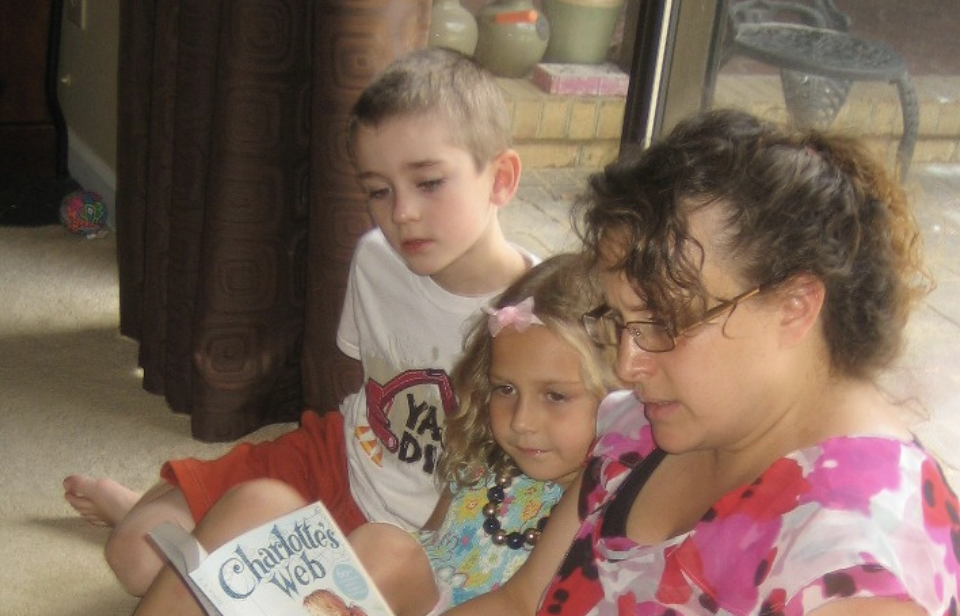Author’s Note: “Sharing a favorite book with family and friends is one of the great joys of my life. Reading aloud together, especially with children and grandchildren, seems to alter the progression of time and merge the generations. The hours loop back on themselves as children come to a greater understanding of literature, and adults recall their childhoods. Reading Charlotte’s Web with my children and grandchildren inspired this poem. E.B. White’s classic tale raises the eternal question as to whether to try to protect children from life’s hurts and challenges or teach them to smile through tears. No answer, but our spoken cadences spin gossamer filaments between us. I’ll keep rereading my cherished books. Who I was when I first read the stories may be waiting within the pages.”
Reading Charlotte’s Web with Rebecca
You don’t realize the first time through
the spider dies
You are quite young and say
Charlotte must have gone away
and when you crawl into my lap
and ask me to read the book again
I hesitate but go ahead.
Then your tears fall,
and you beg to be in a story with a different end.
I don’t know how to comfort you
or teach the lesson
I’m still trying to learn
about befriending the lonely
and caring for the needy
and spinning art not just for fame
but for people and pigs and its own saving grace
even if we die unrecognized
leave children orphaned
and weather into wayward fairy dust.
You sit beside me now, two years
hence, and we open the book once more.
Your vocabulary much improved
You recite the words slowly to me
and to the little brother who has arrived
to join us in the telling of the story
where we see it’s possible to be
delicate and strong
kind and bloodthirsty
all at once in “this lovely world, these precious days.”
⧫
Ellen Sazzman has been published in Another Chicago, Poetry South, PANK, Ekphrastic Review, WSQ, Sow’s Ear, Lilith, Beltway Quarterly, and CALYX, among others. She received an honorable mention in the 2019 Allen Ginsberg contest, was shortlisted for the 2018 O’Donoghue Prize, and won first place in Poetica Magazine’s 2016 Rosenberg competition. She was also a 2012 Pushcart Prize nominee. Her collection The Shomer (Finishing Line Press) was a finalist for the 2020 Blue Lynx Prize and a semifinalist for the Elixir Antivenom Award and the Codhill Press Award.
Delmarva Review is a nonprofit literary journal publishing the most compelling original new poetry, nonfiction, and short fiction from thousands of submissions during the year. It is available worldwide from Amazon.com and other online bookstores. The review is designed to encourage outstanding new writing from authors everywhere. Support comes from tax-deductible contributions and a grant from Talbot Arts with funds from the Maryland State Arts Council. Website: www.DelmarvaReview.org.

